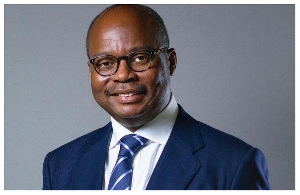Dr. Ernest Addison, Bank of Ghana Governor, has emphasised the critical importance of maintaining momentum on structural reforms as the country’s economy shows signs of stabilisation.
Data reveal that growth is proving to be more resilient and robust than initially programmed, as the economy continues to show strong signs of recovery in Q1 of 2024. Overall Real GDP growth for Q1 2024 was 4.7 percent – the highest since Q1 of 2022 – compared to 3.1 percent growth recorded in the same period of 2023. Industry grew the most at 6.8 percent, followed by Agriculture at 4.1 percent and Services with 3.3 percent.
Inflation is declining in response to the ongoing fiscal consolidation, tightening of monetary policy and relative stability in the exchange rate. Headline Inflation declined by 1.9 percentage points to 23.1 percent in May 2024 from 25 percent in April 2024, after peaking at 54.1 percent in December 2022.
Speaking at a joint press conference with the International Monetary Fund (IMF) and Ministry of Finance, Dr. Addison highlighted the need for unwavering commitment to the reform agenda even as the country marks progress in its economic recovery.
“Steadfastness and commitment will be needed from now till end of the year to see through all the structural reforms envisaged under the programme,” Dr. Addison stated, following completion of the second review of Ghana’s US$3billion 36-month Extended Credit Facility (ECF) arrangement with the IMF.
The Governor’s emphasis on continued reforms comes at a crucial juncture for Ghana’s economy. While significant progress has been made in addressing macroeconomic imbalances, Dr. Addison made it clear that the work is far from over.
He specifically pointed to the importance of implementing key structural changes, including signing a Memorandum of Understanding between the Ministry of Finance and Bank of Ghana on recapitalisation of the central bank.
“This will strengthen the central bank’s credibility to effectively deliver on its reforms,” Dr. Addison explained, underscoring the importance of this step in bolstering the overall economic recovery effort.
The call for sustained reform efforts comes against a backdrop of improving economic indicators. Dr. Addison noted: “The macroeconomic outlook is dramatically improving and there are clear signs of economic stabilisation; growth is surprisingly on the upside, inflation has fallen significantly, fiscal policy is consolidating and foreign exchange reserve build-up has been robust”.
One of the most notable achievements has been the significant reduction in inflation, which dropped from 54.1 percent at the end of 2022 to 23.1 percent by the close of 2023.
This success was attributed to “very effective monetary policy operations which were very costly to the Bank’s balance sheet but very necessary for the public good”.
However, Dr. Addison was quick to point out that challenges remain. The pace of disinflation slowed in the first four months of 2024, only beginning to fall significantly at the end of May.
Despite this temporary slowdown, he expressed optimism for the future, stating: “We expect this to continue through till end of the year under the tight monetary and fiscal policies, stable exchange rate and expectation of improved food supply during the harvest season”.
Addressing the banking sector, Dr. Addison emphasised ongoing efforts to ensure banks are well-capitalised to support economic growth.
He expressed confidence in the sector’s soundness, liquidity and profitability, noting that most banks are ahead of their recapitalisation plans.
Despite these positive developments, Dr. Addison stressed that inflation remains a concern at 23.1 percent, still significantly above the end-year target of 15±2 percent.
“The rest of the year will be challenging but we will remain resolute, working with the Ministry of Finance and IMF to ensure that the improving outlook is sustained,” he stated.
Click to view details



Business News of Wednesday, 3 July 2024
Source: thebftonline.com

















